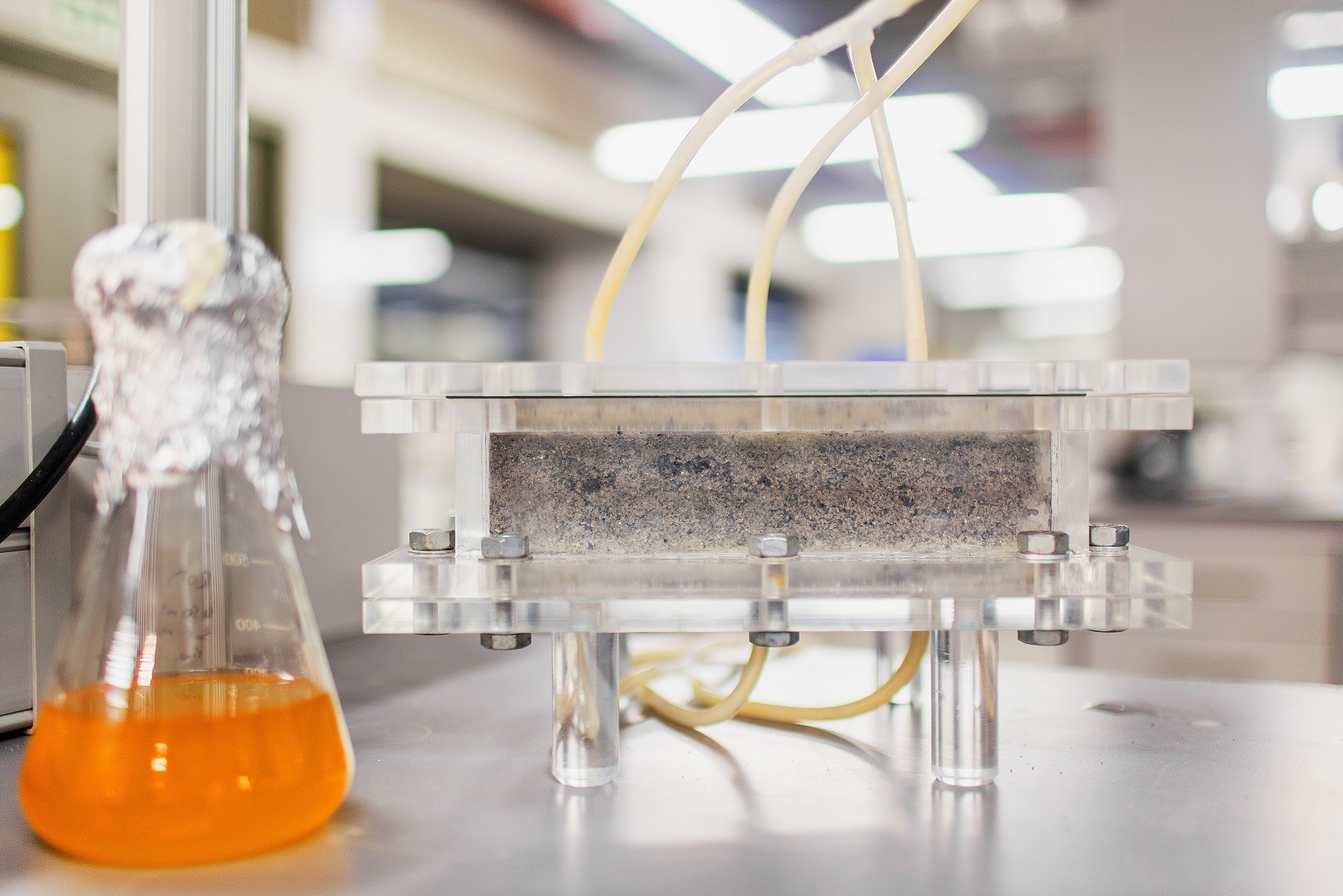
The urea present in human urine can be used to drive a natural process called microbial induced calcium carbonate precipitation, whereby bacteria breakdown the urea into carbonate ions. This project focuses on growing bio-bricks and other bio-material using various waste streams such as urine, building rubble, mine tailings etc. It also focuses on optimising the process while understanding the fundamentals.
What we do
Our urine bio-brick work focuses on producing building material using nature-based solutions, whereby we use special bacterial to produce bio-cement. In 2018, we grew the world’s first bio-brick from human urine and have since improved method considerably. Our current work is focusing on optimising the process while using different types of aggregates to form a wide range of products, all produced from “waste” streams.
Impacts
This work has the potential to rethink how building materials are manufactured, by instead focusing on more sustainable processes. We aim to develop the bio-brick process further so that a wide range of products can be produced using as little energy and resources as possible.
Key emerging insights
-
Human urine can be used to grow bio-material.
-
Natural bio-cement processes are efficient and capable of producing products with similar characteristics to conventional manufactured building material.
Team
Dr Dyllon Randall (Future Water Institute), Project Leader (dyllon.randall@uct.ac.za)
Funders
Duration
2017-Current
Outputs
-
Lambert, S.E., Randall, D.G. Manufacturing bio-bricks using microbial induced calcium carbonate precipitation and human urine, Water Research 160 (2019) 158-166. https://www.sciencedirect.com/science/article/pii/S0043135419304579.
-
Henze, J., Randall, D.G. Microbial induced carbonate precipitation at elevated pH values, Journal of Environmental Chemical Engineering 6(4) (2018) 5008-5013. https://www.sciencedirect.com/science/article/pii/S2213343718304251.

